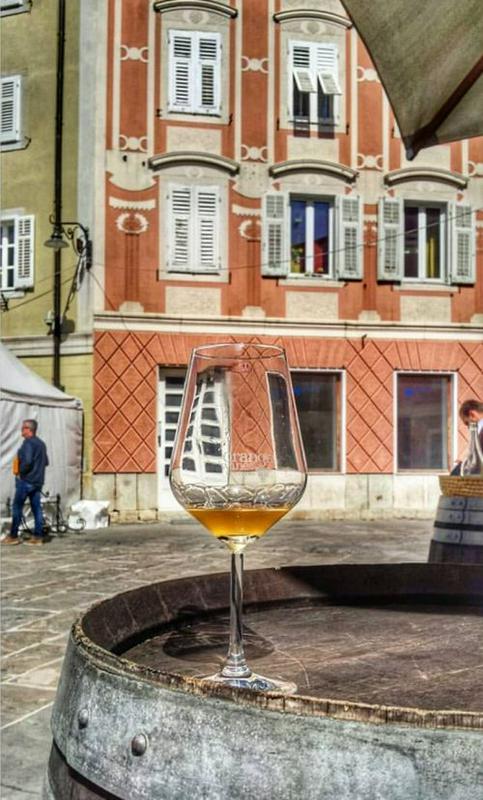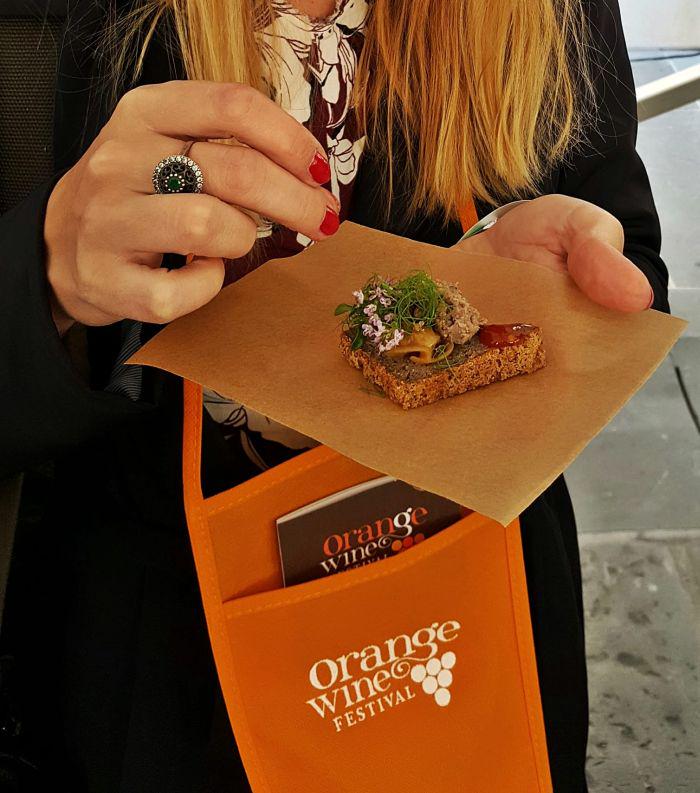

The Festival brought together the vintner stars, such as Aleš Kristančič (Movia) and Marjan Simčič, considering macerated white wine just an addition to their other lines, and those orthodox, boutique biodynamic vintners such as Aci Urbajs. And here is the crux of the polemics regarding the orientation of the Orange Wine Festival; some people are of the opinion that the festival is not selective enough when choosing participants, and that the characteristic "orange" is neither descriptive nor restrictive enough.
Several of the 59 vintners participating this year could be sooner characterised as conventional than natural vintners. Yet, the Orange Wine Festival is not defined as the festival of natural wines, as for example Raw (London), Label Grand Karakterre (Wien) or Border Wine (Cividale del Friuli), therefore there is more leeway.
On the other hand, a vintner must prove »compliance of production of his wines with the events principles« in order to obtain an invitation to participate at the Festival. The principles of production include "as natural production as possible, prolonged maceration, and spontaneous fermentation, as little interventions in the cellar, and low content of sulphur in wine". The result is the presence of those vintners who consider a 100% natural and ecological production of wine as a distant aim, and those vintners acting as Stanko Radikon, regretfully deceased (his cellar is now in the hands of his son Saša) and Dario Prinčič, who have actually started the movement of natural "orange" wines in our country – a long time ago, before it became (conditionally speaking) so fashionable.
Which is not necessarily a bad thing, although certain purists blame the Festival of false advertising. But the fact remains that abroad wine festivals tend to specialize, and limit the selection. We have not yet reached that point, although the vintners from Slovenia and from across the border belong among the very best in the world in the field of ecologic and natural wine – which was recently confirmed by the Decanter evaluation.
Orange wines are white wines made using a technique employing prolonged contact of grape skins with must, i.e. the technique used for production of red wines. In this way, the pigment of the steeped grape skins containing colouring pigments and tannins give the white macerated wine deeper, amber or orange colours. The orange wines are often called the »fourth« colour of wine. Maceration can take from a couple of days to a couple of months. It is a traditional technique a number of vintners reintroduced, both in places where such procedure used to be traditional, e.g. in Georgia, and in other regions as well.
Kaja Sajovic, MMC
Translated by G. K.

































































